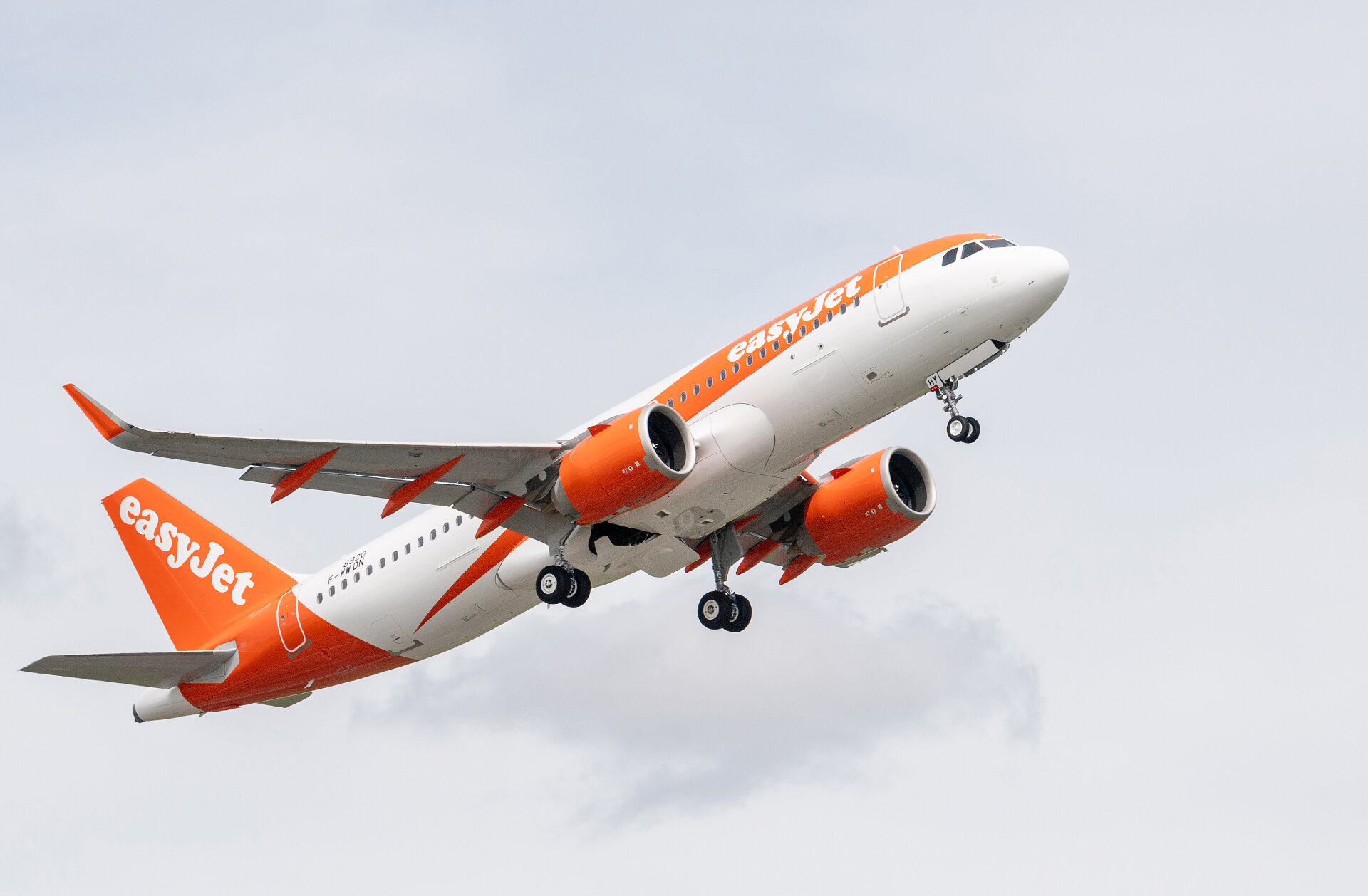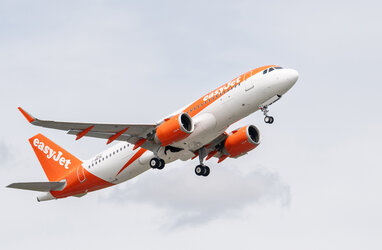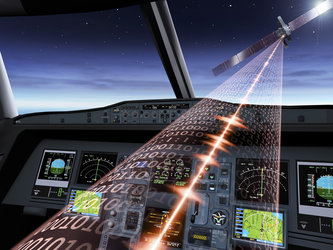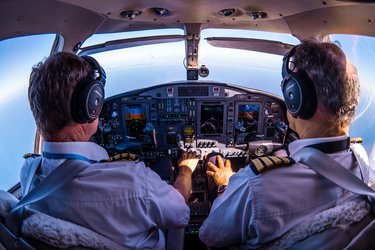easyJet signs up for Iris space-enabled digital skies
Passengers on board commercial airline easyJet will speed to their destinations faster and greener, thanks to an ESA-backed initiative to digitalise the skies.
The Iris system uses satellites to connect pilots digitally to air traffic controllers, so that flight routes can be optimised. Pilots will be able to fly the most efficient routes, saving time and fuel while cutting emissions of planet-warming carbon dioxide.
easyJet will fit the Iris system to up to 11 newly delivered Airbus A320neo aircraft, flying commercially from November 2022.
ESA developed the Iris system in partnership with UK-based satellite communication company Inmarsat to help ease congestion in the skies. Air travel is increasing rapidly and is expected to return to pre-pandemic levels within the next few years and to continue to rise thereafter.
At present pilots mostly communicate with air traffic controllers by voice or by using an outdated data communication technology. This makes flight operations inefficient, as planes have to be kept further apart from one another and follow pre-defined air corridors instead of taking the most direct route.
Data exchanges will soon become the primary means of communication, with large quantities of data relayed to and from the aircraft. Iris provides highly secure, high-bandwidth links between pilots and air traffic controllers.

Philippe Carette, President of Inmarsat Aviation, said: “Having easyJet onboard as our first Iris partner is excellent news, not least because of its pioneering commitment to innovation and reducing the aviation industry’s environmental impact. With Iris we are kickstarting a new era that will help make aviation greener, and the more airlines that step forward to evaluate Iris’ capabilities, the sooner this will become reality.”
Hugh McConnellogue, Director of Airport Operations and Navigation at easyJet, said: “Iris is paving the way for more efficient air traffic management, which is a crucial step forward for the aviation industry. The Iris programme brings multiple benefits, from helping us to achieve our environmental goals by further reducing our carbon emissions from flying, to providing a better experience for our passengers. We are excited to be leading in this space, setting the standard for the aviation industry and hope to see more airlines follow suit.”
Elodie Viau, Director of Telecommunications and Integrated Applications at ESA, said: “This innovation has been an enormous undertaking by ESA, Inmarsat and more than 30 other companies within the space and aviation industry, so to see it finally ‘take to the skies’ in a live operational environment is very exciting. European airspace is crying out for a solution to its capacity issues, and advanced satellite technology is the only way to set the industry up for a better – and greener – future.”












